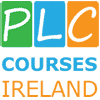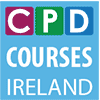
For students one of the most challenging aspects of study is setting up an effective structure which will show good return at exam time, it’s good to make the most of the time put aside for study by putting in place some techniques and routines. Effective study habits are very important for achieving satisfactory exam results. They help to store information in long-term memory. Applying the following rules for studying should help to improve exam results.
Study Tips
- Keep the area around your desk neat and tidy. If possible, the area should also be quiet. If you are having trouble finding a quiet place to study, perhaps try an outdoor location, a garden or park could be suitable provided the weather is good. If noise is unavoidable, then try listening to some relaxing music or white noise while studying.
- Sit down for 45 minute intervals, followed by 15 minute breaks. Having an easily attainable goal, like sitting for set duration of time, is effective for increasing motivation.
- Reward yourself if and only if you have met your goal for that study session. For example, if you plan to study one chapter and succeed, then you may reward yourself. Examples of positive reinforcement are: healthy snacks, exercise, video-games, etc.
- Have a scheduled study time for each classroom day. Remember that one classroom hour should be reinforced by two hours of studying at home.
- Make corresponding links between your shortened notes and your textbook. This will help you to fill in any background information not covered in the notes.
- Prepare questions about difficult parts that you might be finding problematic. These can then be addressed to the teacher or tutor at the next class.
- Put any new words or concepts into practical use. The more you use the learned information, the more likely you will be to remember it. This is especially true for language classes.
- Finally, review what you have studied just before you finish your study session. This will help imprint the information in your memory.
Things to Avoid
- Procrastination. Cramming is not beneficial for producing long term memory.
- Studying on the computer. You are bound to be tempted to check your email or surf the net. Studies also show that people skim over information more on computer screens, which does not effectively log the information in memory.
- Leaving mobile phones nearby during study time. No matter who is calling or texting, usually it can wait 45 minutes. Having your cell phone on silent mode during study time can help remove distractions.
- Studying just after having eaten. Studies have shown that thinking is slower after having a meal.
- Daydreaming. When you feel your mind begin to wander, remind yourself to concentrate. If you are reading, using a pencil or pointer is a good way to keep your mind on track. Even moving your finger on the page forces you to pay more attention to what you are doing.
Studying V Memorising
Of course studying and memorising are 2 different things. If you read something once it is likely that it will not remain in memory for long. It is usually necessary to go over notes between 2 and 7 times before they will become logged in longer term memory. It is also important to break up information so that the brain does not become overloaded. It may be worthwhile reading up on some memorisation techniques available online to be sure that your study time is being used effectively. One such resource is available at http://www.wikihow.com/Memorise.
Remember also, if there are parts of your study material that you don’t understand or need help with, not to be afraid to get in contact with a course tutor, after all that’s what they’re there for. Most often they will be glad to see that students are making an effort and are trying to learn and will be happy to help with any parts of the course that are causing difficulty.


 Distance Learning and Online Courses are offered in a number of different formats, these include correspondence courses (by post), online via computer or a combination of online and classroom instruction (blended learning).. View
Distance Learning and Online Courses are offered in a number of different formats, these include correspondence courses (by post), online via computer or a combination of online and classroom instruction (blended learning).. View  Further Education and PLCs (Post Leaving Cert Courses) have become a popular alternative to the CAO system here in Ireland. PLC Courses are validated by QQI (Quality & Qualifications Ireland) at levels 5 & 6 of the NFQ.. View
Further Education and PLCs (Post Leaving Cert Courses) have become a popular alternative to the CAO system here in Ireland. PLC Courses are validated by QQI (Quality & Qualifications Ireland) at levels 5 & 6 of the NFQ.. View  Continuous Professional Development (CPD) helps to keep job skills and professional knowledge up to date and ensures the standard of registrations & qualifications are maintained.. View
Continuous Professional Development (CPD) helps to keep job skills and professional knowledge up to date and ensures the standard of registrations & qualifications are maintained.. View  Evening courses and part time learning options are a great way to enhance a CV, to socialise and make friends, as well as learn something completely new. There are an abundance of night courses and evening classes available.. View
Evening courses and part time learning options are a great way to enhance a CV, to socialise and make friends, as well as learn something completely new. There are an abundance of night courses and evening classes available.. View